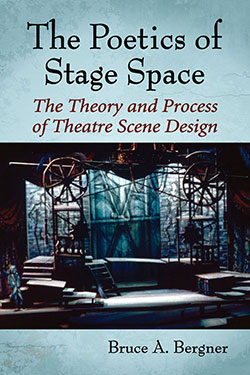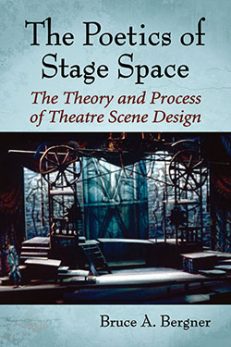The Poetics of Stage Space
The Theory and Process of Theatre Scene Design
$29.95
In stock
About the Book
This book analyzes theatre scene design through the powers and characteristics of physical space. Physical space is central to creative composition in the theatre, but the author extends the reach of the book to individuals concerned with spatial design—architects, interior designers, industrial designers, artists and other performers. A theory is presented on how design, and its creative process, echo the process of human awareness and action.
The book covers an array of considerations for the theatre designer—the observable features of given physical spaces, their layout, detailing and atmosphere—and presents these features from the points of view of various disciplines. There are chapters on the “physics” of space, the “geography” of space and the “music” of space. The author also speaks to the less tangible qualities sensed more personally, such as the “spirituality” or the “psyche” of space. A discussion of the collaborative process of creating space is included.
Instructors considering this book for use in a course may request an examination copy here.
About the Author(s)
Bibliographic Details
Bruce A. Bergner
Format: softcover (7 x 10)
Pages: 180
Bibliographic Info: 43 photos, bibliography, index
Copyright Date: 2013
pISBN: 978-0-7864-7541-4
eISBN: 978-1-4766-0334-6
Imprint: McFarland
Table of Contents
Table of Contents
Preface 1
Introduction: Composition 4
Part One. Seeing 7
1. Fundamentals 9
2. The Theatre Artist 16
3. Physics 19
4. Geography 31
5. Geometry 45
6. Aesthetics 57
7. Music 74
8. History 81
9. The Connective Thread 88
Part Two. Knowing 93
10. The Soul of Space 95
11. The Anthropology of Space 114
12. Metaspatial Design 127
13. The Appraisal of Space 131
Part Three. Making 135
14. The Ritual of Making 137
15. Designing 147
Part Four. Being 163
Bibliography 167
Index






